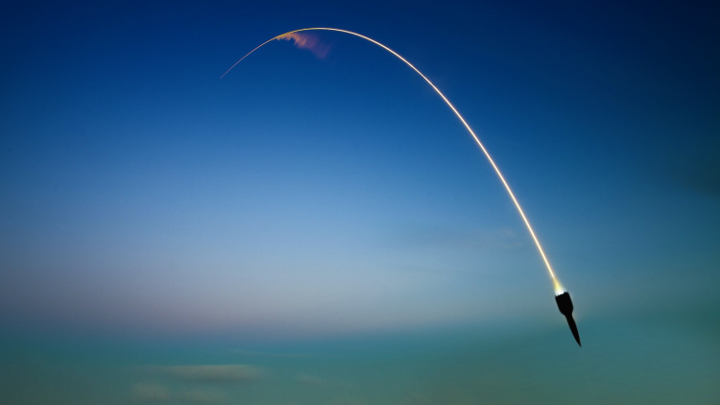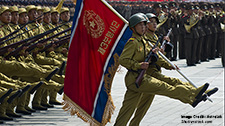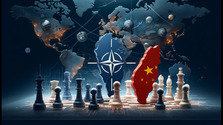What Does Denuclearisation Really Mean?

Sangsoo Lee
In full view of the international media, the destruction of North Korea’s nuclear testing ground at Punggye-ri went ahead on 24 May. Yet hours later, US President Donald Trump announced the cancellation of the June summit in Singapore via Twitter, posting his letter to Kim Jong-un expressing regret over the need to cancel ‘inappropriate talks’ after statements from Pyongyang seemed to backtrack from a ‘commitment’ to complete denuclearisation.Now the summit once again appears likely to go ahead. This sudden on-and-off diplomacy has left many observers confused.
The strategic decision to stage an historic US–DPRK summit seems to suggest that there is, at least symbolically, a degree of political will and a shared desire for consensus between Trump and Kim. Both leaders seem prepared to seriously discuss denuclearisation and security guarantees. But there still exist fundamentally divergent interpretations of what ‘denuclearisation’ and ‘security guarantees’ really mean to the opposing sides in the negotiation.
Pyongyang’s outrage over US National Security Advisor John Bolton’s proposal of a ‘Libya Model’ for North Korea’s unilateral denuclearisation contributed to an exchange of statements that may push the summit off track. North Korea’s disquiet was a clear reminder that it does not agree with the ‘complete, verifiable and irreversible’ model of denuclearisation, which would include the transfer of its nuclear warheads out of the country. Instead, Pyongyang prefers a process of ‘action for action’, where denuclearisation measures are exchanged for benefits such as the lifting of sanctions, security assurances and the normalisation of relations. Trump seems to have since distanced himself from the Libya model, branding his approach the ‘Trump Model’: a more transactional process where ‘rewards’ are provided to North Korea for its denuclearisation.
There are still many undefined expectations on both sides. North Korea may bring up the issue of the denuclearisation of South Korea, which could potentially mean banning the deployment of US strategic military assets to the Peninsula and removing the US nuclear umbrella from South Korea entirely. There are also important differences of opinion in regard to sequencing, timeframes and reciprocity. A KCNA release recently stated that ‘North Korea is advancing along the path taken by itself according to its timetable no matter whatever others may say’.
Having so far kept its cards close to its chest, the preparatory meetings for the summit between the United States and North Korea in Singapore, Panmunjom and New York will perhaps present a clearer picture of how the DPRK defines denuclearisation and whether such a definition will be acceptable to the United States. There is much work to be done in narrowing this definitional gap.
Most likely, the implementation of any agreement concerning a denuclearisation process will be contingent on the provision of security assurances to North Korea. The level of distrust between the two states is so high that Pyongyang cannot be certain that the United States will fulfil any promise to end their hostile relationship and guarantee North Korea’s security once the North denuclearises. Even if a roadmap is agreed to, thorny questions of implementation and the attendant issues of verification and transparency remain. Such issues have fatally undermined previous agreements.
There are other factors that could derail the process. Domestic hardliners on both sides could act as spoilers, resisting any compromise. Denuclearisation and normalising relations might prove tough sells domestically.
China is a critical player in this story. Trump’s earlier ‘cancellation’ of the 12 June summit was a signal not only to Pyongyang but also to Beijing. The United States is duly concerned about the seeming turnaround in China–North Korea relations after Kim’s two visits to China in March and May. If China is prepared to ease sanctions, then there might be less reason for North Korea to make concessions to the United States. China may also be less willing to maintain tough sanctions if it believes that Washington is attempting to isolate Beijing in the upcoming process of negotiation. Japan, sceptical about what can be achieved through US–DPRK negotiations, could also act as a spoiler if it feels its interests are being overlooked.
A more serious scenario will be if negotiations fail, particularly if the Trump administration entertains other military- or sanctions-related options. But Trump’s maximum-pressure policy is likely to have less impact on Pyongyang than before due to the improvement in China–North Korea and inter-Korean relations. In any case, Pyongyang will use any strategic space available between the United States and China, and between the United States and South Korea, to not only protect itself from US military strikes but also to soften the sanctions regime. One thing remains clear: the process leading to denuclearisation will only become more complicated.
This article was originally published at East Asia Forum and is available here.
Related Publications
-
Unraveling of a martial law attempt: South Korea’s democratic moment
South Korea, once known as the “Land of the Morning Calm” and the Hermit Kingdom, has a complex modern history marked by ideological tensions and political challenges. Since the establishment […]
-
Will Kamala Harris Reignite Dialogue with North Korea if Elected in 2024?
Quid Pro Quo: Will Controlled Dialogue Make a Comeback? In late August, in her nomination acceptance speech, the U.S. Democratic presidential candidate for 2024, Kamala Harris, unequivocally talked about not cozying up […]
-
Uncharted Territory: Exploring the Legal Ramifications of NATO’s Hypothetical Involvement in Taiwan
You might just have been living under a rock to not have noticed that recently there has been a change in tone at the North Atlantic Treaty Organisation (NATO) on […]
-
The Political Split at the Heart of Taiwan’s Struggle against Foreign Disinformation
Taiwan’s struggle against foreign disinformation and concerns about China’s impact on its 2024 election has received much international attention recently. This issue brief examines the domestic and international politics behind […]
-
ISDP Annual Report 2023
ISDP’s Annual Report for the year 2023. We look back on 2023, a year in which tensions and conflicts captured the strategic space in ISDP’s focus areas, making headlines around […]




